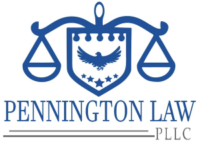Dedicated Help With Estate Litigation Matters in Arizona
Trusted guidance for both executors and beneficiaries
The term “estate” refers to real property and personal property that a decedent owned as of the date of death. As attorneys, we know that wherever there is property, there are often conflicting interests that can lead to legal disputes. These disputes typically arise after the original owner has passed on and heirs and others clash over their claimed rights to control or receive assets. As estate planners, Pennington Law, PLLC strives to eliminate conflict by drafting precise and comprehensive legal documents and helping to ensure they are executed under the laws of Arizona. However, we also represent clients engaged in estate litigation involving wills, trusts and means of inheritance. We draw on decades of experience to provide trustworthy counsel and vigorous advocacy to protect our clients’ rights.
Types of estate litigation in Arizona
When a person passes away, the law requires that all their debts be settled and that their remaining assets be distributed either according to their estate planning documents or by operation of the state’s laws of inheritance. The most common disputes that arise are:
- Creditor litigation — Creditors’ claims against the estate are not always well-documented. Records of alleged personal loans or sales of property may not exist. However, when an executor denies a claim, the creditor can sue the estate, asserting that the claim has a reasonable basis.
- Will challenges — There are several reasons why an heir or other interested party might contest the will’s validity. Will challenges can allege forgery, fraud, undue influence, vagueness and other reasons for declaring the instrument void in whole or in part.
- Executor performance issues — The executor of an estate has a duty to perform competently and honestly. When beneficiaries or other interested parties suspect mismanagement or malfeasance, they can sue to hold the executor accountable.
- Trust management issues — Often, estate assets are placed in a trust to be managed by a trustee. The trustee’s duty is similar to the executor of a will. If trust beneficiaries suspect mismanagement, they have the right to sue, seeking court intervention.
Many disputes are easily resolved but complex estate cases can last for months or longer. Understanding that prolonged litigation can exhaust estate assets, we try to expedite resolutions that uphold our clients’ rights.
Cases against executors and trustees
Executors and trustees are fiduciaries, who have the duty to manage assets conscientiously for the benefit of the heirs and beneficiaries and to refrain from self-dealing. Conflicts can arise alleging a variety of misdeeds, including:
- Mismanagement of assets — Making risky investments that lose money or performing faulty accounting are some of the red flags that suggest incompetent management of funds.
- Misappropriation of assets — Fiduciaries are permitted to charge reasonably for their services. However, taking funds or hard assets for personal use is embezzlement, which is a theft crime.
- Errors in distribution — Fiduciaries must make distributions according to the terms of the will, trust and other estate documents. These terms often leave room for interpretation, which can put fiduciaries and beneficiaries at odds.
Executors and trustees are fiduciaries and so are personally liable to the estate or trust for the consequences of their mismanagement or malfeasance. In other words, they are responsible for making up losses incurred due to negligence or other wrongdoing. In our practice, we represent fiduciaries as well as beneficiaries in cases alleging trust and estate mismanagement.
Contact an experienced Arizona estate litigation lawyer today
Attorneys at Pennington Law, PLLC litigate estate disputes in Surprise, Sun City West, Buckeye and vicinity. We provide trustworthy counsel based on a personal approach to every detail of your estate case. Call 623-208-7867 or contact us online to schedule your free consultation.

